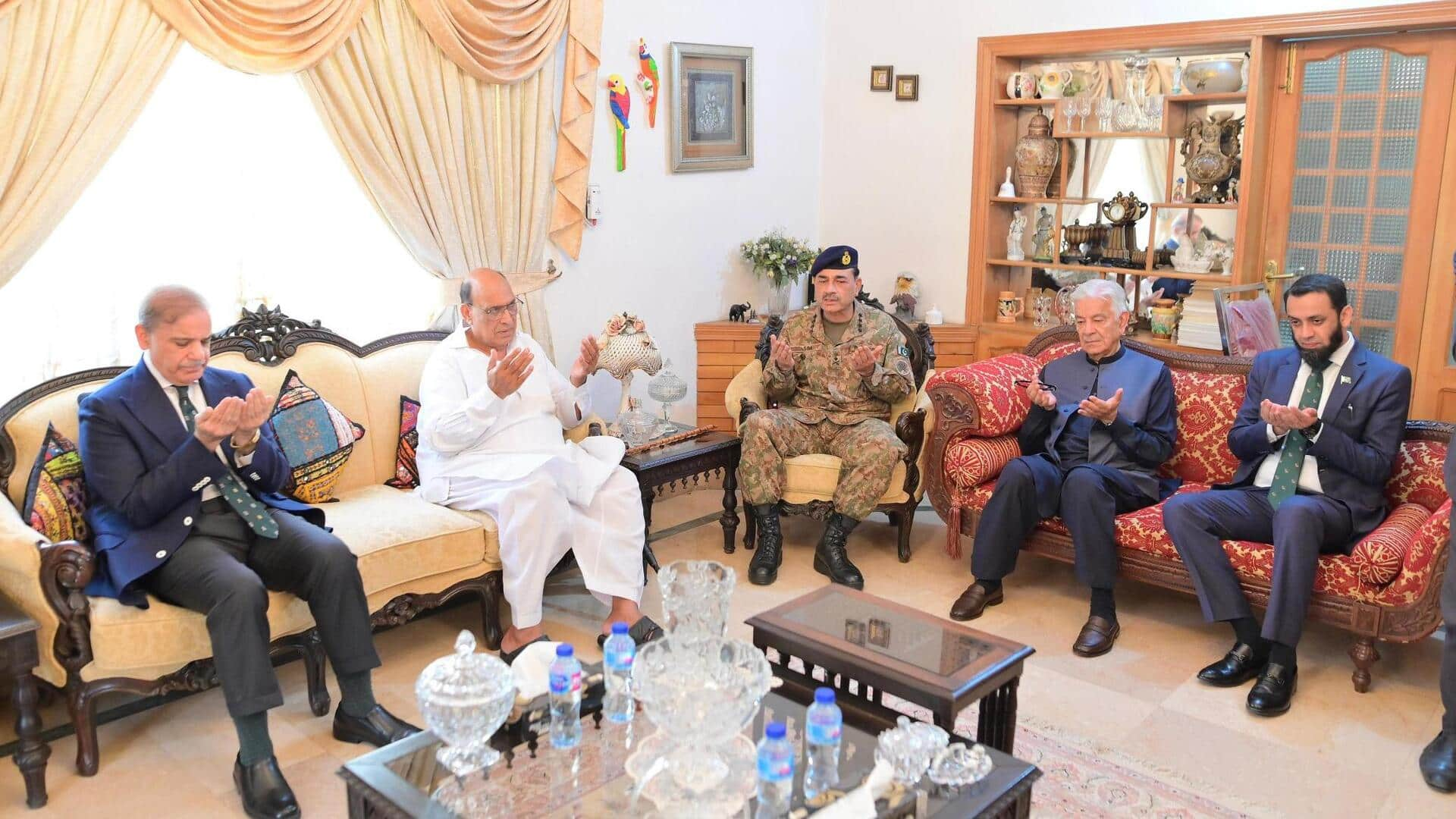
Pakistan's top-brass meet privately at ex-PM's farmhouse; what was discussed
What's the story
Pakistan's civil and military leadership has reportedly finalized a 10-year strategic power plan. The plan, which was decided during a closed-door meeting at former PM Nawaz Sharif's farmhouse in Murree, aims for political and economic stability through "continuity of the system," News18 reported. Prime Minister Shehbaz Sharif, political figure Maryam Nawaz, Chief of Army Staff Field Marshal Asim Munir, and ISI Director General Lt. Gen. Asim Malik were present at the meeting.
Leadership extension
Army chief's reappointment
A key part of the plan is Munir's reappointment as Chief of Army Staff, the channel reported. His current term ends on November 28, 2025, but he may be given a five-year extension under amendments to the Pakistan Army Act of 1952. A formal notification for his reappointment is expected soon, with constitutional protections being considered to prevent legal challenges against this extension.
Governance reaffirmation
Hybrid governance model to continue
The Murree meeting also reaffirmed Pakistan's hybrid civil-military governance structure. Under this system, key decisions such as top military appointments are made through consensus between political and military leadership. Important positions like DG ISI, DG Military Intelligence, and DG-C within the ISI will be filled jointly to maintain institutional balance and control.
Political discussions
No relief for Imran Khan
The meeting also discussed the political future of former prime minister Imran Khan, who is currently imprisoned. The leadership reportedly decided on "no relief or political concessions for Imran Khan." They view him and his Pakistan Tehreek-e-Insaf (PTI) party as destabilizing forces and are pursuing legal means to neutralize him while ensuring no legal challenges against Munir's reappointment.
Legal challenge
Opposition plans to challenge Munir's extension
The opposition, including PTI and allied groups, however, plans to legally challenge Munir's extension in Pakistan's higher courts. They cite concerns over military overreach and erosion of democratic principles. To preempt such challenges, the government is looking at ways to give constitutional protection to Munir's extended tenure, the News18 report stated.